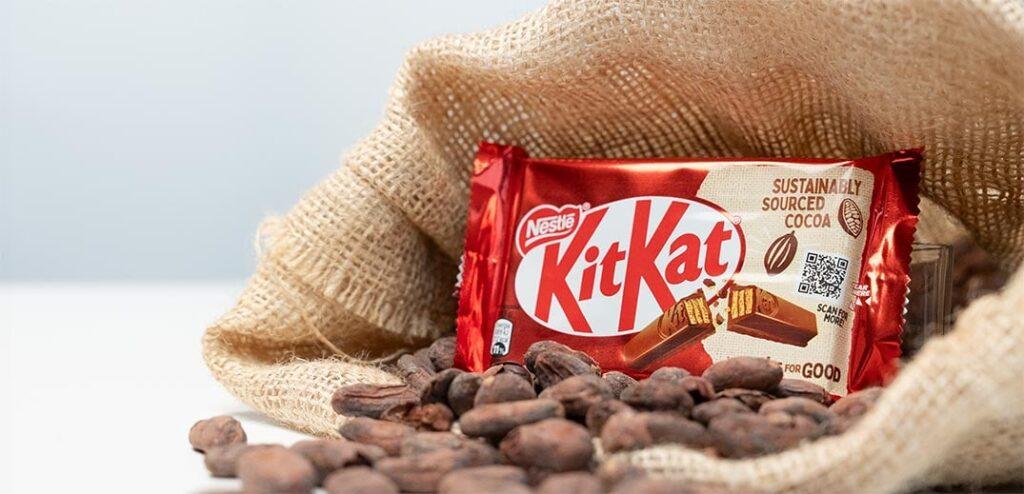Nestlé Introduces First KitKat Using Cocoa From Income Accelerator
Nestlé has announced the introduction of the first KitKat bars produced from cocoa mass made from beans grown by farmer families engaged in the company’s income accelerator, to European markets.

Through the income accelerator programme, KitKat aims to ‘close the living income gap’ of families involved in cocoa farming, and reduce child labour risks.
The scheme also aims to advance better agriculture practices, promote gender equality, incentivise cocoa-farming families that enrol their children in school, implement good agricultural practices, engage in agroforestry activities, and diversify farmers’ source of income.
Family Support
To date, Nestlé’s income accelerator has supported more than 10,000 families in Côte d’Ivoire and is expanding to Ghana this year to include a total of 30,000 families. By the end of the decade, Nestlé hopes that the programme will reach an estimated 160,000 cocoa-farming families in Nestlé’s global cocoa supply chain.
The KitKat ‘Breaks for Good’ edition goes on sale this month in 27 European countries, and from April 2024 in the UK. In addition, Nestlé is also rolling out a limited-edition KitKat produced from 70% dark chocolate also sourced from the income accelerator.
Related news
New Nestlé Vital nutritional drink targets the rising demand for healthy-aging solutions
🎧 Hallgasd a cikket: Lejátszás Szünet Folytatás Leállítás Nyelv: Auto…
Read more >GLP 1: passing hype or a lasting trend?
🎧 Hallgasd a cikket: Lejátszás Szünet Folytatás Leállítás Nyelv: Auto…
Read more >Nestlé to sell remaining ice-cream assets but commits to Froneri venture
🎧 Hallgasd a cikket: Lejátszás Szünet Folytatás Leállítás Nyelv: Auto…
Read more >Related news
KSH: retail turnover in January exceeded the same period of the previous year by 3.5 percent and the previous month by 0.5 percent
🎧 Hallgasd a cikket: Lejátszás Szünet Folytatás Leállítás Nyelv: Auto…
Read more >A magyar csapat március 15-én lép színpadra a Bocuse d’Or Európai Válogatóján
🎧 Hallgasd a cikket: Lejátszás Szünet Folytatás Leállítás Nyelv: Auto…
Read more >REGIO Játék: 25.4 billion forints in sales and international opening
🎧 Hallgasd a cikket: Lejátszás Szünet Folytatás Leállítás Nyelv: Auto…
Read more >









